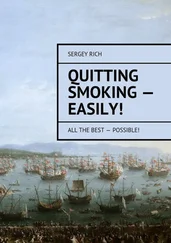Soon after this exchange, Rudyard was asked if he wanted to teach the drama in a girl’s school in Cleveland, Ohio. The job was excellent and Rudyard was extremely pleased. “Such is the mystery of this life,” he said. “The secret missions and visits of Milady Fortune, a well-known lady of the evening, are invariably surprises. Had I sought this job, I would not have received it. Just because I did not strive for it, it was given to me. All good things are given, not gained by the effort of the will.”
No one paid attention to this comment and interpretation, because more interesting by far was the topic of the effect of Rudyard’s departure on the circle as such. Edmund declared that Rudyard ought not to become a teacher, since he had dedicated himself to the writing of plays. Edmund quoted some of Rudyard’s best past arguments in defense of his mode of life, and concluded with the statement that Rudyard would feel unhappy and estranged when he was so far from the circle. Laura was affected the most. She was excited and pleased for a moment, and then she was terrified. She said to Rudyard repeatedly that she might well ask to be sent to Cleveland by the department store which employed her. But Rudyard felt that he had had enough of life with Laura. He told her that he did not consider such a move a wise one for her, and he suggested that she secure a smaller apartment, for he did not intend to return to the city in the summer, he was going to be in the country. Ferdinand agreed with both Rudyard and Edmund. They were both his friends and whatever they said or did was right.
Edmund and Jacob discussed the fate of the circle after Rudyard’s departure. Jacob felt that the circle would continue certainly and some of the others, overshadowed by Rudyard’s energy, might now realize new possibilities in themselves. He observed how year by year Rudyard’s authority had diminished so that now Ferdinand truly dictated the circle’s mode of life more and more, as he earned more and more money. When he said this, Jacob explained as before that he himself did not truly belong to the circle. This was a necessity to each of them, to maintain that he himself was but a visitor or stranger, although the others truly belonged to the circle.
As Rudyard prepared to depart, he said again to his sister that she surely ought to move to a smaller apartment, since it was unlikely that they were ever going to live with each other again. The other boys said nothing, but they felt it cruel and unnecessary for Rudyard to dictate to Laura. Edmund suggested to Ferdinand in private that perhaps Rudyard did not want the circle to exist when he was absent. Hearing Rudyard say petulantly to Laura for the fourth time that it was senseless for her not to move elsewhere, Lloyd said with naiveté that then they would all be deprived of their community. “Yes, that’s just it,” said Rudyard, his face full of annoyance and distaste, “I don’t want Laura to provide a clubhouse anymore.” Laura became furious. “You were willing enough for me to do that until now,” she said. “Never,” Rudyard replied, “I never wanted you to provide a second home for the boys.” He spoke with a self-righteous tone because he was sensitive now about the fact that he had been dependent upon Laura.
The week-end before Rudyard was to depart for Cleveland, Ohio, it was decided that a farewell party ought to be given for him. Ferdinand immediately declared that as a matter of fact he was going to contribute a case of champagne to this party. As his prosperity mounted, his gestures became more and more of a systematic extravagance. Laura wanted to make dinner for the whole circle, but Edmund dissuaded her. The question of who was to be invited to this party among those on the edge of the circle, the visiting strangers and the accepted newcomers, became the subject of intensive discussion.
The whole circle dined at the best restaurant in the neighborhood and Ferdinand insisted upon paying the check. “He is beside himself,” said Edmund to Jacob, “this departure means more to him than he knows.”
By the time everyone had returned to the Bell household, Laura was drunk. This was no less than was expected, for Laura had been drinking every night for weeks. But no one expected the speech she began to make as soon as the champagne was opened.
“Five years ago, just about the time when we all began to see each other,” said Laura, rocking and gaining the attention of all by the loudness and shrillness of her voice, “I read a story by Rilke. I think it was Rilke. It was just a very short story. It was just a page and a half, and it may have been less. It was very good. I don’t remember all of it, but what I remember was very good. The story is about wandering Siberians. They are hunters and they hunt wild cows on the Siberian steppes or tundras, or something. Anyway, they hunt for wild cows.”
Rudyard, annoyed, said: “Laura has established the fact that they were hunters. She has made that clear.” He was obviously impatient with Laura.
“Never mind,” said Laura, “the main thing is that the Siberians spear the wild cows like cowboys on horseback. And when the poor cow is bleeding to death, the hunter lays down on one side of the cow and chews big pieces of meat from the side of the cow. This is just like many other stories so far. The different part is that on the other side of the cow, the horse also lays down and chews out big pieces of meat.”
“The story,” said Rudyard, “is by Kafka, not Rilke, and you have distorted it.” He took a book from the shelf, turned to the proper page and read aloud, pausing after each sentence.
“‘Their very horses live on meat. Often a rider lies down beside his horse. Then both feed on the same piece of meat.’
“The story,” Rudyard continued in a critical voice, “is about nomads, not Siberians. It is nomads who come to the capital. They eat butchers’ meat, which they have stolen from butchers’ vans. The meat comes from the slaughter house and nothing is said about eating living cows who are bleeding to death. You have changed the story in a way familiar to me because I know how your memory distorts many things, making what has happened more brutal and more cruel than it was in actual fact.”
“Never mind,” said Laura. “Let’s say that I wrote the story then. I wrote the story from my knowledge of life. But I am the cow, and you,” she said pointing at Rudyard, “are the nomad, the Siberian, and you,” she said, pointing to the other boys, “are the horses, chewing on the other side.”
“I am not a horse,” said Marcus, who was amused and thought this a witticism.
“Shut up,” said Edmund to Marcus.
“If you expect too much from human beings,” said Jacob, “you are bound to be disappointed.”
“I never expected anything unusual,” said Laura, “all I ever wanted was what everyone else has.”
“This is getting hysterical,” said Marcus, who was always slow. “What a party!”
“Can’t you think of anything good to say about any of us?” asked Jacob in a kind voice.
“I can,” said Laura, “but if I lean backwards anymore, I will fall down and injure my spine, to coin a phrase.” Laura reached for a glass of champagne, which Rudyard tried to keep her from getting. But he was unsuccessful.
“I don’t have what I want,” said Jacob to Laura, “and I don’t think that many of us have what we want.”
“Yes,” said Rudyard, returning to his own kind of rhetoric, “I too may say that I am disappointed. My plays are not performed, although many of them are masterpieces, if I may say so. I think I may say without immodesty that I am superior to the age in which I live. I pay for my superiority to Broadway by leading this life of obscurity. Yet I do not seek out a scapegoat, as you do, Laura. Furthermore, we ought to remember that this life is a mystery in which each of us is given by God his own gifts and shortcomings. To live is better than anything else! Let us take pleasure in life!”
Читать дальше












